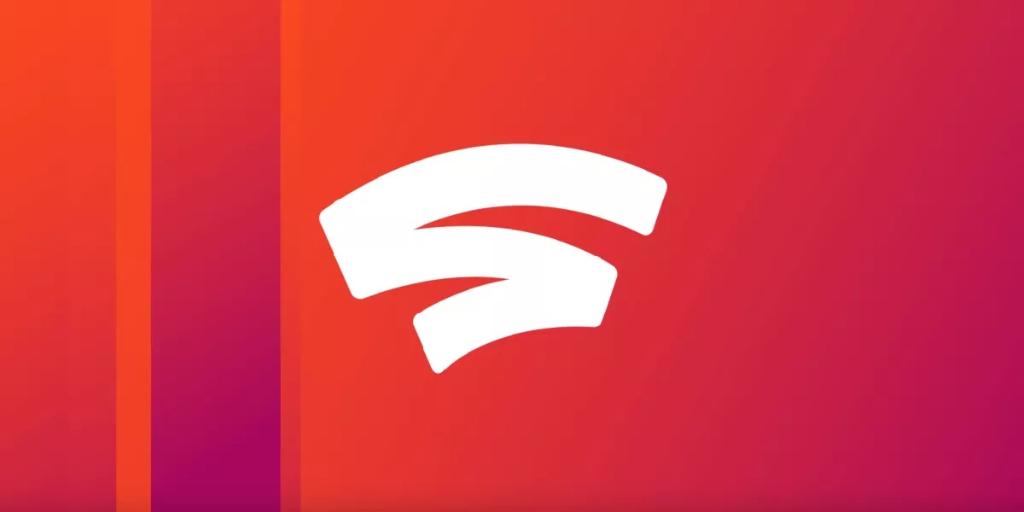Gamers Don't Want to Like Stadia - But It'll Do Better Than People Think
- Stadia may have limited releases announced, but exclusive games are not the only way into the hearts of consumers
- The target market just isn't hardcore gamers, at least at the start

Trigger Warning: This article is full of opinions that are likely to make lots of gamers mad. But before you pick up the pitchforks, hear me out.
Stadia has spent a fair amount of time pushing the notion that it is NOT the Netflix of games. Both in an AMA that we covered, as well as in the latest Stadia Connect, this has been mentioned. Yet still, what they are doing -- which I compare far more to the Audible model than to Netflix -- does share some similarities with Netflix. But not in the way you'd think.
While Stadia is NOT the Netflix of games, the origins of Netflix and the landscape when it was first released looks familiar. Both Stadia and Netflix aspired to do something different than what the standard models said worked. At the time that Netflix was born, the model for consuming movies was going to a local Blockbuster or Hollywood Video and renting it. That was just plain how things were done. And mind you, at this time, streaming had nothing to do with Netflix. You couldn't stream anything. All you could do was pay for a mail service where DVD's were shipped to your home, and you would send them back to get the next disc on your list auto-shipped out to you.
Yet, even though going into a physical store nearby to rent a movie was more convenient, Blockbuster and companies like it had gotten away with some pricey practices for too long, and they'd become too reliant on those fee-based methods. Charging membership fees and late fees had become an integral part of making money -- and they were methods that Netflix didn't want to engage in.
"Late fees? Keep that DVD as long as you like. But to get the next one, you need to mail us the last one!"
You see, it wasn't just the convenience of Netflix that helped it succeed. It was the fact that it saw a target market who couldn't afford to pay late fees and didn't like getting charged for them, and these computer-savvy individuals just flat out stopped renting as much or all together! Why? The cost-benefit analysis no longer worked out for these "casual" movie watchers. But Netflix? No fees? Simple system? Keep as many DVD's as you like? Get 3 movies or more a month for the price of one late fee? Now that's a service this casual consumer could get behind.
Stadia is on the cusp of the very same situation with a different kind of consumer. You see, over time, video game platforms like PlayStation and Xbox and even Nintendo Switch have gotten harder and harder to rationalize purchasing. The barrier to entry has risen. And while when I was in high school or even in college, it didn't seem insane to spend $200-300 on a new system, I am not the same type of consumer that I was then. I'm too casual for that price point.
Heck, Nintendo recognizes that a consumer base exists beneath their price-leading Switch system (the lowest of the three major players) -- and it's why they have been attempting to go even further down that line by offering up their new Nintendo Switch Lite. So clearly manufacturing practically an entirely new system specifically so people can play it at a lower price point must have some fiscally responsible research behind it.
The other practice that Microsoft, Nintendo, and Sony have been using forever is the assumption that people will stick to a specific system for a specific title. After all, that's what has worked forever. If you're hooked on Zelda, you're playing Nintendo or nothing. If you're hooked on Halo, you're playing Xbox or nothing. But as prices continued to increase on these gaming machines, and as individuals in the gaming generation of Atari, NES, and others kept growing up... the price didn't reflect their changing responsibilities. The casual gamer wants to own a PS4 at launch, but not at an initial price of $400-600. And they certainly don't want to wait 5 years to purchase it at the lower $250-300 range it goes for now -- after many game developers are moving on and new systems are in the works.
It's simply no longer in the budget. So where did these casual gamers go? They went to Steam. They went to mobile. Or, like our fee-based consumers that became the basis for Netflix's smashing success, they didn't go anywhere. They just stopped playing games entirely.
It's not that these consumers aren't interested in games. It's that Microsoft, Sony, and even Nintendo have essentially priced them out of the market. They don't hate games. They often think about how they would love to get back into games, to spend a few hours here or there on a new title. But they aren't about to purchase a high-end system. They already spent a large chunk of change on a cell phone. And a new TV. And that computer is old but can still run Steam decently enough.
And if a service could turn that cell phone, or that smart TV, or that laptop into a gaming device? If it could run graphics at as high a level as they remember from days gone by? If there was a way to eliminate the barrier of entry and give access to games that offer up that same experience of adventure and aren't necessarily Nintendo titles (which are great by the way, but just a different target market)? Well... if that existed.. they'd be in.
Netflix didn't just beat Blockbuster's antiquated model because of convenience. It was only marginally (at best) more convenient than Blockbuster. In fact, in some ways, it was LESS convenient than walking to a physical store and renting a movie. But what Netflix had was a fresh take on a system that had become bloated -- and frankly the methodology of asking $600 or more for a game system at initial release, only to release a cheaper and less capable system with a smaller hard drive later? It's a perfectly fine way to make a buck and all, but it's a miracle that the initial price has continued to grow over the years. It only works because Microsoft and Sony both choose to play the game.
But Google is coming. And so is Amazon. And so is xCloud (the Microsoft equivalent). And they're offering people the opportunity to play a different kind of game. So even if they don't win -- even if this is VHS over Betamax, or BluRay over HDDVD, or OnLive, or Parsec, or whatever technological reference you want to use -- it's still gonna change the market and how videogames are consumed. It's still going to bring new players to that market, perhaps many like me who if given the ultimateum of $300 and Zelda or nothing at all, would choose nothing.
Stadia doesn't need to be better than PS4 or Xbox One. It needs to capture a consumer market who isn't playing games right now. Stadia can get better and grow with that market until it meets the type of qualifications needed by the regular gamers to bring them into the fold. It doesn't need contracts with every independent developer at the onset. It doesn't need franchise titles.
It just needs to be cheaper than anything else on the market at an acceptable performance standard, and it'll change how the game is played.






